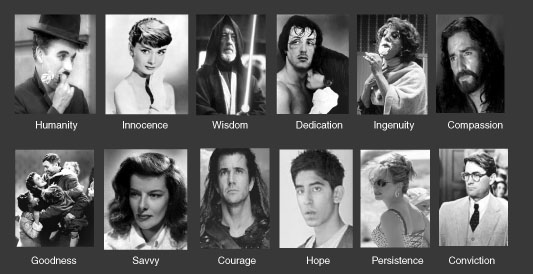Too Many Principles, Not Enough Passion
If you listen to enough screenwriters, read enough industry articles and books, and attend enough seminars and conferences, you'll soon have heard so much about plot points, character arcs, dialogue and page lengths, and the latest trends in the industry that you'd think writing a screenplay is more like solving a complicated calculus problem than writing a personal, passionate, engaging story.
And while principles and precepts are essential to the process of crafting an engaging and compelling script, they can also be too exacting, too limiting, and too much work in approaching the craft which so many of us love.
First of all, PRINCIPLES ARE POWERFUL. They give substance, direction, focus, and a framework on which to build your stories. As spontaneous as most writers propose to be, they still need a method to their madness.
If you want to drive from Dallas to LA, you would be wise to get a map before you head off into the horizon. Others before you have followed one and successfully travelled there. You'll be able to do the same. Time-honored principles are time-honored because they work, they work well, and others love and even expect them to be used.
But OVERUSE AND MISUSE OF PRINCIPLES CAN RENDER YOUR WORK PASSIONLESS if applied for their own sake and with an unwillingness to adapt throughout the creative process. We see it all the time when a writer tries to force his story into a rigid, sterile mold and ultimately ends up writing a rigid, sterile story.
Yes, you need a map to get from Dallas to LA but sometimes you have to take a detour or alternate route. In fact, if you're too rigid, you may miss out on the fact there there may be an easier or more effective way of getting where you're going. You may even find out you want to head off to an entirely new location.
The point is to LET THE POWER AND PASSION OF YOUR PIECE BE PERFECTED THROUGH A PRAGMATIC USE OF PRINCIPLES. Once you've followed your outline and solid storytelling precepts and splashed your initial insights down on paper in all their rawness and fervor, you can then revise your work based on the initial passion of your story and be as creative as your heart desires.
In subsequent drafts, you can follow a revised outline and use additional principles of good craftsmanship to hone and chisel concise and clear dialogue, further develop plot points that drive your story forward, and add description that adds insight and color, all the time re-instituting the energy and inventiveness that birthed your story.
And in your final drafts, when your characters have appeared, your story is defined, and your themes are enmeshed, you can start drawing outside the lines, being creative, letting the story come alive, and being spontaneous.
So, read the books. Know the rules. Go to the seminars. Study the industry. But keep the original passion alive at the beginning, middle, and end of your story and you'll end up with a powerful, passionate, and principled story.
Subscribe to:
Posts (Atom)












